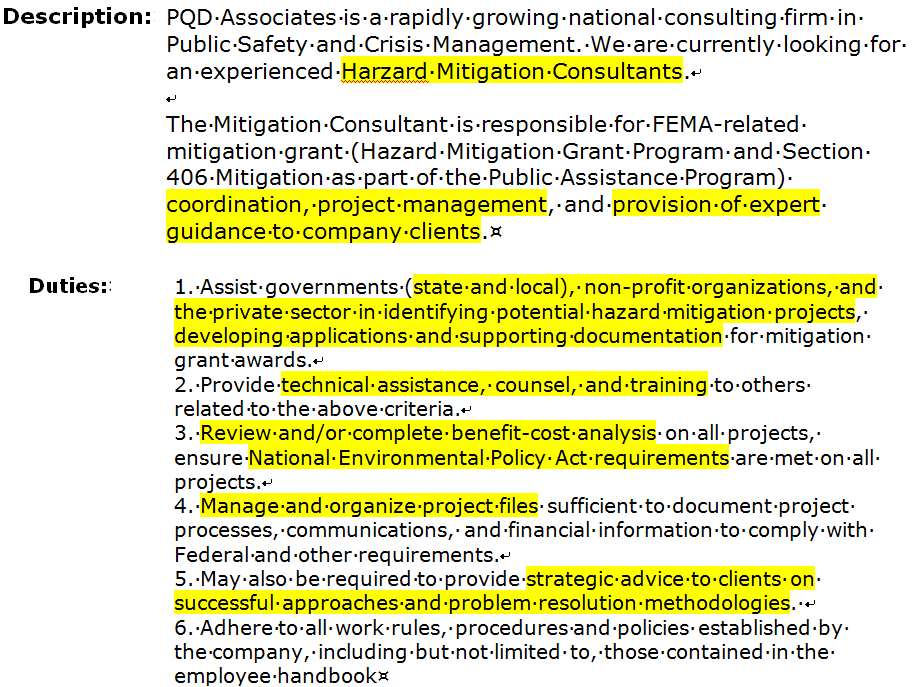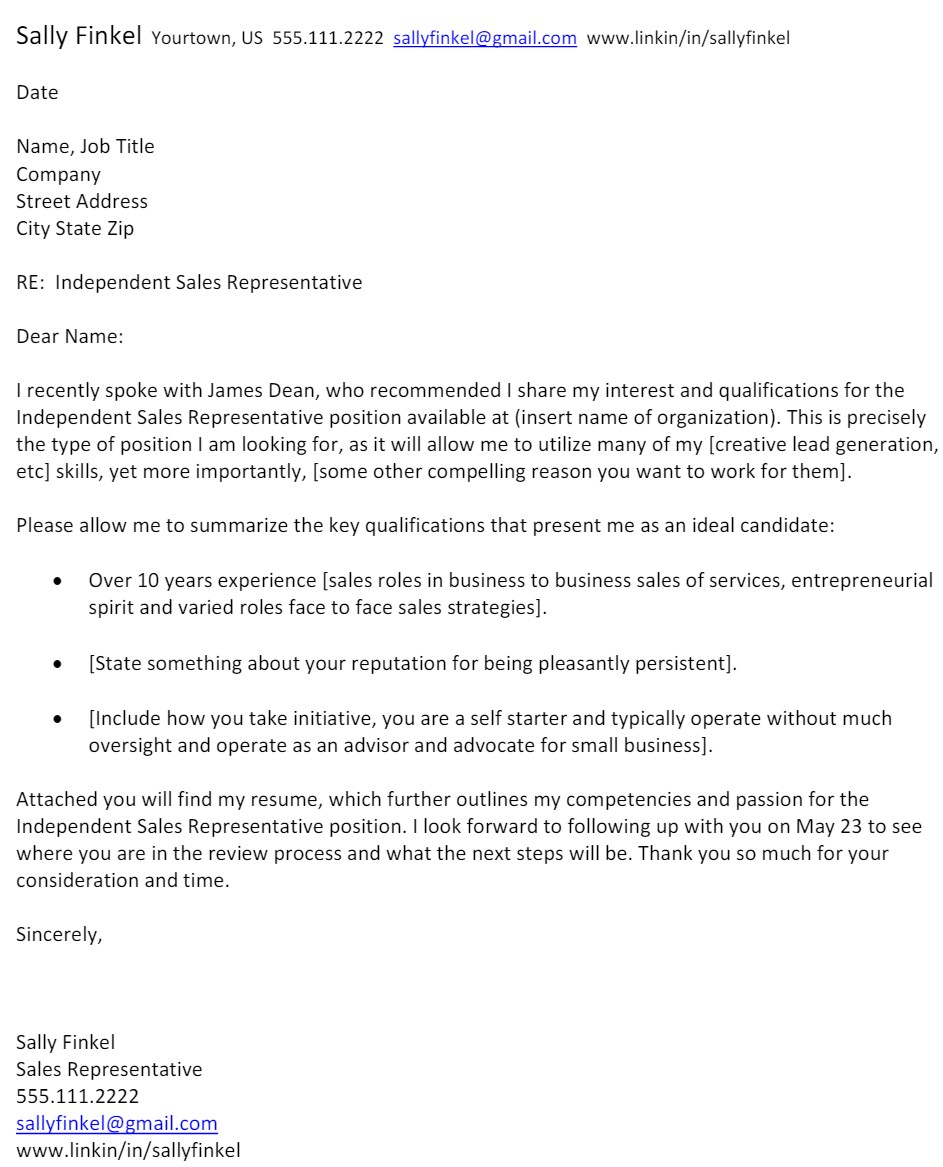Title:Can We Talk About Your Cover Letter?
Author:Hannah Morgan
Date:February 2020
Source:Career Sherpa - Reprinted with permission
Your cover letter may be as important as your resume. It should be given the same amount of attention and contain just as much customization as you put into crafting your resume.
Let's Talk About WHY You Need A Cover Letter
For many hiring managers or resume screeners, your cover letter explains which job you are interested in and more importantly WHY you are interested in the position/company and how you are qualified.
Your cover letter must explain what value you bring to the company. Don't just list your skills.
It is your responsibility to connect the dots so the review can see how you fit the position.
No one will care about you unless you tie your experience to the job posting.
The Exceptions
There are exceptions to every rule.
Some hiring managers/screeners/recruiters will never read your cover letter. Others won't even glance at your resume unless you have a well-written cover letter.
You can't make them read your cover letter, nor should you assume they won't read it and not include one.
But because you don't know the preference of the individual receiving your materials, you MUST WRITE A COVER LETTER.
Your cover letter could be the one thing that sets you apart from other candidates and get's your resume a look.
More Variations In Preferences
Just as every reviewer has different personal preferences, so does every company and industry. Your job as a candidate is to understand the expectations of the audience you are applying to.
A position in graphic design would require your cover letter to demonstrate your creativity. A sales job would expect to see proof of your assertiveness and sales skills. And a position within an accounting firm, law firm or government agency, would expect a traditionally outlined letter.
The most important rule in writing is to KNOW YOUR AUDIENCE and customize your cover letter.
Here's an example of a bad cover letter that didn't follow instructions.
How To Get Started
Research The Company
- What is the organization's mission?
- Have they been in the news recently or have any of their key officers been in the news?
- What types of positions have they been hiring for lately?
- What is their reputation?
You want this information because you are going to include a reason why you are interested in the company in your opening paragraph.
Underline Keywords In The Job Posting
Literally, do this to make sure you are not overlooking any key qualifications or words or skills.

Note: I may have overlooked some key phrases. You may not even use them all. But knowing what you want to emphasize is important.
Cover Letter Format
Three paragraphs are all you need. Your letter should take up less than a page. People don't have a lot of time. You have to learn how to make your point concisely!
Opening Paragraph (Explain why are you writing?)
- In response to an ad or someone referred you
- Use your knowledge of the company
- Explain why you want to work for the company and/or why the job interests you
- Make the first paragraph INTERESTING!
Skills Summary (Explain why are you qualified)
- When responding to a job posting, match your top skills with what they are looking for in the job posting
- Keep it brief and easily skimmable
- Use 3-5 bullet points
Closing Paragraph (Say Thank You and explain your next steps)
- Thank them for considering your resume and reiterate your interest.
- Let them know you will be calling to follow-up.
Always follow instructions! If the posting requests samples of work or other information, address that in your letter.
Here are 8 Ways To Customize The Dreaded Cover Letter.
How to Address Your Letter
Take the time and find the name of the person who is in charge of hiring for this position. The job posting may offer you clues about who the role reports into.
Use LinkedIn to research the hiring manager's name.
If the best you can do is get the name of the person in HR, fine, use it. I hear excuses all the time that people can't find the name. You can and should take the time to try.
If you honestly have tried and can't find the name, then consider using "Dear Hiring Manager"
All the rules of business letter writing apply! Know them!
Sample and More Examples
I know you want to see samples of what good ones look like. Here is one:

You can check out these 8 different examples by The Muse.
How To Submit Your Cover Letter
Do you wonder how you'll submit your resume and cover letter? Rule number one is... Always follow the instructions about how to apply in the job posting, ALWAYS!
Your cover letter is most likely too long to go into an email. Put it with your resume attachment as page one. Don't make the reader open up two attachments, they won't! In your email, clearly state that your cover letter and resume are attached.
Note: Name your attachment with your name and job title you are applying for. For example hannahmorganTrainer.com.
USPS/Snail mail
Sometimes your only option is to mail your cover letter and resume. Then again, there may be instances when you really want to stand out and you may decide to email AND send your materials through the mail.
Doing both isn't always a bad thing if you mention in the mailed letter that you are sending it this way to ensure it isn't overlooked.
- Print the cover letter and resume on appropriate paper
- Sign your name, include your phone and email on the cover letter
- Do not staple or print on two-sides (This makes it more difficult for the people to scan and process your documents.)
ATS (Applicant Tracking System)
If you are applying online, convert your documents to .txt files which strips them of Word formatting. This will better ensure the information is uploaded correctly.
If you are given the opportunity to submit a cover letter, do it!
Note: Do not use a pdf file unless the instructions say it's ok.
To learn more about preparing your resume for ATS read this: How To Get Past The Applicant Tracking System.

